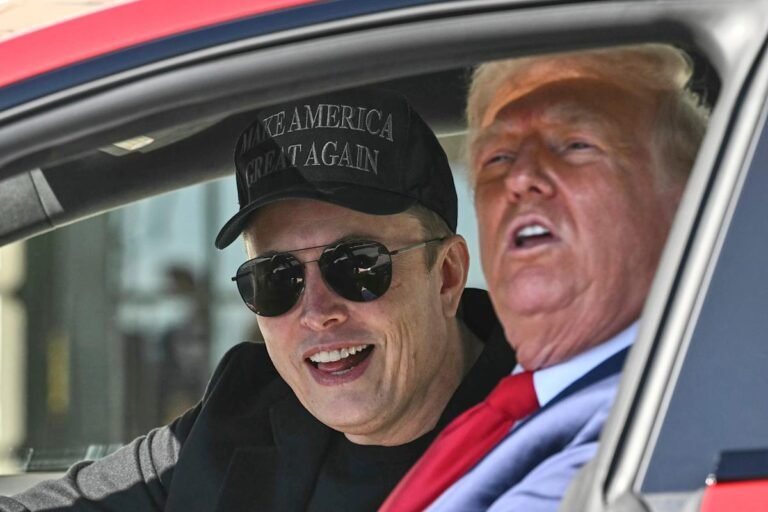On Tesla’s (TSLA) first quarter earnings call last night, CEO Elon Musk reiterated one clear distinction between him and President Trump: He views tariffs as bad.
“I’ve been on the record many times saying that I believe lower tariffs are generally a good idea for prosperity, but this decision is fundamentally up to the elected representative of the people being the president of the United States,” Musk said in his opening remarks. “So, you know, I’ll continue to advocate for lower tariffs rather than higher tariffs, but that’s all I can do.”
Later on, when prodded by Morgan Stanley analyst Adam Jonas about comments Musk made about ramping up tariffs in the past (as opposed to immediate imposition), Musk added:
“I’m an advocate of, you know, predictable tariff structures, and generally, I’m an advocate for, you know, free trade and lower tariffs. But now one does need to take a look at where, you know, if some country is doing something predatory with tariffs or is providing extreme support.”
Prior to President Trump’s “Liberation Day” event, where he imposed tariffs across the board on many countries (before quickly backtracking), Musk and other White House officials lobbied the president not to go through with a punitive tariff structure.
Read more: The latest news and updates on Trump’s tariffs
While Musk is a strong Trump supporter, he’s also an operator, and tariffs on foreign imports and critical supply chain parts would be devastating for the company, even one that claims to have localized most of its supply chain and is around 85% USMCA compliant.
In its Q1 report, Tesla blamed trade uncertainty as a reason behind slumping sales, though some believe Musk’s other political activities, like running DOGE, may have blunted demand.
Read more about Tesla’s stock moves and today’s market action.
“Uncertainty in the automotive and energy markets continues to increase as rapidly evolving trade policy adversely impacts the global supply chain and cost structure of Tesla and our peers,” the company said in a statement. “This dynamic, along with changing political sentiment, could have a meaningful impact on demand for our products in the near-term.”
Because of this uncertainty, Tesla said it would revisit its 2025 guidance in its second quarter financial update and removed its long-term growth forecast.
Wall Street analysts weighed in on the Trump tariff impact on Tesla’s various businesses, noting, as Tesla did, that tariffs would hurt more than just the auto business.
“The key [trade] headwinds are: (1) Energy business is disproportionally affected by tariffs as TSLA sources the LFP batteries from China, (2) Volume guidance was temporarily paused due to tariff uncertainty, (3) China restrictions on rare earth minerals, which are employed in permanent magnets for electric motors, may negatively affect Tesla’s business; (4) A relevant portion of manufacturing equipment is sourced from China,” BofA analyst John Murphy noted in a research report.

